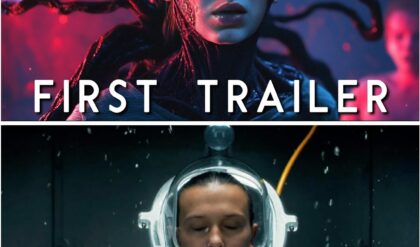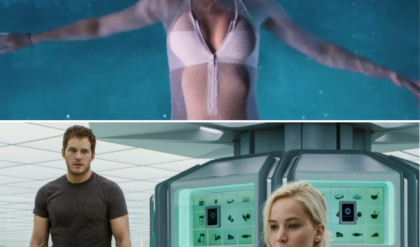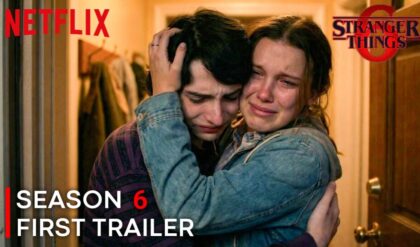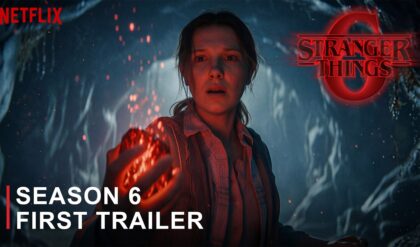Marvel’s Ironheart Sparks Outrage: Why Feminists Are Calling Out Disney’s Treatment of Riri Williams
Marvel’s highly anticipated Ironheart series, set to premiere on Disney+ on June 24, 2025, was poised to be a landmark moment for representation in the Marvel Cinematic Universe (MCU). Centered on Riri Williams, a young Black female genius inventor played by Dominique Thorne, the show promised to carry forward the legacy of Tony Stark’s Iron Man with a fresh, diverse perspective. However, just weeks before its debut, Ironheart has become embroiled in controversy, with posts on X claiming that feminists and fans are turning on Disney over the alleged mishandling of Riri’s character. This backlash, coupled with broader criticism of Marvel’s creative decisions, has cast a shadow over the series. This article explores the roots of the controversy, the cultural and industry dynamics at play, and what it means for Riri Williams’ future in the MCU.
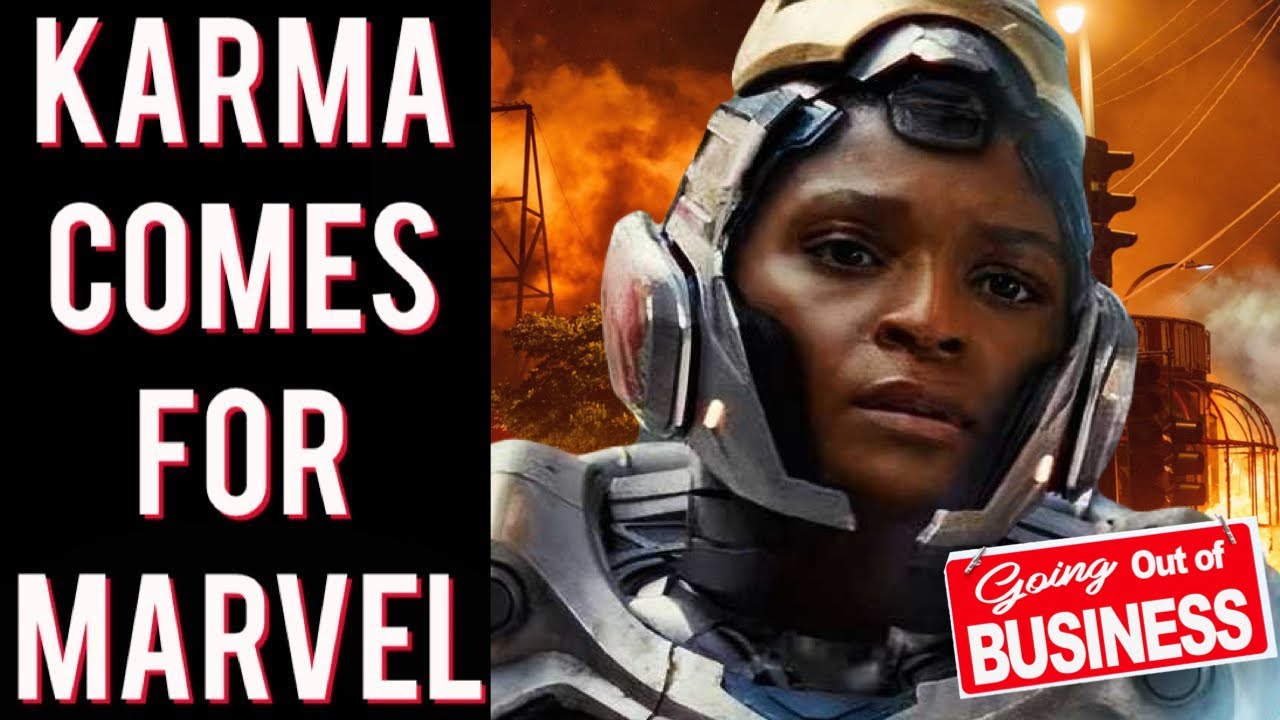
The Promise of Ironheart: A New Hero Rises
Riri Williams, introduced in 2022’s Black Panther: Wakanda Forever, is a teenage MIT student who builds her own Iron Man-inspired suit, earning the moniker Ironheart. Created by writer Brian Michael Bendis and artist Mike Deodato in 2016’s Invincible Iron Man comics, Riri is a brilliant inventor from Chicago’s South Side, whose resourcefulness and determination mirror Tony Stark’s, albeit from a vastly different socioeconomic background. Her MCU debut, where she aided Shuri against Namor’s forces, showcased her potential as a hero, setting high expectations for her solo series.
Ironheart, executive-produced by Black Panther director Ryan Coogler, follows Riri as she returns to Chicago after her Wakandan “internship.” The six-episode series, with a three-episode premiere, pits Riri’s technology against the magical powers of Parker Robbins, aka The Hood (Anthony Ramos), a morally ambiguous figure who tempts her with resources to fuel her ambitions. The trailer, released on May 14, 2025, highlights Riri’s struggle to build a new suit after leaving her Wakandan armor behind, emphasizing her grit and ingenuity. With a cast including Lyric Ross as Riri’s friend Natalie and Alden Ehrenreich as Joe McGillicuddy, the series promised a grounded, character-driven story.
Yet, despite this promising setup, Ironheart has faced significant pushback. Posts on X, such as one by @YellowFlashGuy on May 19, 2025, claim that feminists are criticizing Disney for undermining Riri’s agency and story, while others, like @CultureCasino, report that the trailer garnered 64% dislikes on YouTube, signaling widespread fan discontent. These reactions point to deeper issues with how Marvel has positioned Riri and the series itself.
The Backlash: Feminist Critiques and Fan Disappointment
The core of the feminist backlash, as reflected in posts on X, centers on perceptions that Disney has failed to give Riri Williams the respect and autonomy she deserves as a lead character. Critics argue that Riri’s story in Ironheart leans too heavily on her connection to Tony Stark, framing her as a “successor” rather than a hero in her own right. In the comics, Riri’s relationship with Stark is mentorship-based, but she forges her own identity as Ironheart. The MCU, however, has been accused of reducing her to a derivative of Iron Man, with the trailer emphasizing her suit-building in a way that echoes Stark’s origin story too closely.
Some feminists on X, echoed by users like @a_bwYXL, express frustration that Riri’s narrative appears to prioritize male characters, particularly The Hood, who seems to drive the plot by offering Riri resources in exchange for “questionable” actions. This dynamic, critics argue, undermines Riri’s agency, portraying her as reliant on a morally dubious male figure rather than showcasing her independent brilliance. The trailer’s focus on action sequences, such as Riri stopping a truck, has also drawn criticism for prioritizing spectacle over character development, a complaint that resonates with fans who feel Marvel has mishandled other female-led projects.
Broader fan discontent amplifies these concerns. Posts on X, such as @PhilMarksOut’s, lament that Riri’s MCU introduction lacked inspiration from Stark or T’Challa, missing an opportunity to ground her story in the legacy of Marvel’s iconic heroes. Others, like @MagicHandz, fear that Ironheart will be “review-bombed” by detractors who oppose its focus on a Black female lead, potentially jeopardizing future projects. The trailer’s high dislike ratio, as noted by @CultureCasino, suggests a polarized reception, with some fans dismissing Riri as a “diversity hire” or an unoriginal replacement for Stark, sentiments that have fueled accusations of racism and sexism.
Contextualizing the Controversy: Marvel’s Track Record
The backlash against Ironheart cannot be viewed in isolation. Marvel’s recent history with diverse leads has been a lightning rod for criticism. The 2024 series The Acolyte faced similar accusations of being a “DEI [diversity, equity, inclusion] concept,” as noted in a post by @akirkb05, and was not renewed, raising fears that Ironheart could suffer a similar fate. Projects like Captain Marvel and She-Hulk have also faced review-bombing and backlash, often from fans who perceive Marvel’s diversity efforts as pandering. This pattern has created a fraught environment for Ironheart, where Riri’s identity as a Black woman amplifies scrutiny from both progressive and conservative audiences.
Feminist critics, in particular, point to Marvel’s inconsistent handling of female characters. While WandaVision and Black Widow were praised for their nuanced portrayals, others, like She-Hulk, were criticized for leaning into stereotypes or humor that undercut their protagonists’ strength. In Ironheart, the decision to pair Riri with The Hood—a villain with mystical powers tied to rumors of Mephisto’s involvement—has raised concerns that her technological prowess will be overshadowed by a male-driven supernatural narrative. The trailer’s depiction of Riri navigating a gas-filled elevator trap set by Robbins further fuels perceptions that her story is reactive rather than proactive.
Marvel’s creative choices also reflect broader industry pressures. The MCU’s Phase Five, concluding with Ironheart, has struggled with audience fatigue and declining box office returns. Films like The Marvels and Ant-Man and the Wasp: Quantumania underperformed, prompting Disney to scale back its streaming slate. Ironheart’s multiple delays—from 2023 to 2025—and reports of significant edits, as hinted by @PhilMarksOut, suggest internal uncertainty about its direction. This context has led some fans to question whether Marvel is fully committed to Riri’s story or merely checking a diversity box.
The Creator Controversy: Adding Fuel to the Fire
Compounding the backlash is the public outcry from Ironheart co-creator Mike Deodato, who revealed on May 19, 2025, that he received no compensation for the series, despite Riri’s transition from comics to screen. In an Instagram post, Deodato expressed pride in seeing Riri come to life but called on Marvel to “recognize the value” of creators, a sentiment that resonated with fans and critics alike. His comments, widely discussed on X, have bolstered perceptions that Disney is mishandling Ironheart at every level, from its narrative to its ethical obligations.
Deodato’s situation highlights a broader issue in Hollywood: the exploitation of comic creators whose work fuels billion-dollar franchises. While Marvel has historically offered payments for characters’ screen adaptations, Deodato’s case suggests inconsistencies, further tarnishing Disney’s reputation among Ironheart’s supporters. This controversy has intersected with feminist critiques, as fans argue that neglecting creators like Deodato—who helped craft a groundbreaking Black female hero—mirrors the alleged neglect of Riri’s character.
Defending Riri: Voices of Support
Despite the backlash, Ironheart has staunch defenders. Fans like @akirkb05 argue that criticism of the series is rooted in racism, pointing out that Riri’s comic origins as a Black woman are integral to her identity. They contend that the backlash reflects discomfort with a Black female lead, a sentiment echoed by @MagicHandz, who urges Marvel not to cave to detractors. Supporters highlight the series’ potential to explore Riri’s unique perspective—her Chicago roots, her resource-scarce upbringing, and her determination to build something “iconic,” as she declares in the trailer.
The involvement of Ryan Coogler, whose Black Panther redefined superhero representation, is a major point of optimism. Coogler’s praise for Riri as a character who “came from an almost polar opposite background” to Stark underscores her narrative potential. Head writer Chinaka Hodge and directors Sam Bailey and Angela Barnes, all women of color, further bolster confidence that Ironheart will center Riri’s voice, even if the trailer has sparked doubts.
Implications for Marvel and Riri’s Future
The Ironheart controversy poses significant challenges for Marvel. To quell feminist and fan concerns, the series must deliver a story that respects Riri’s agency and complexity, avoiding tropes that diminish her as a derivative of Stark or a pawn of The Hood. The high dislike ratio on the trailer suggests Marvel faces an uphill battle to win over skeptics, particularly those who view the series as a “woke” misstep. Addressing Deodato’s grievances could also help restore goodwill, signaling that Disney values the creative roots of its heroes.
For Riri Williams, the stakes are even higher. A successful Ironheart could cement her as a cornerstone of the MCU’s next generation, alongside characters like Kamala Khan and Peter Parker. A misfire, however, risks sidelining her, reinforcing fears that Marvel struggles to sustain diverse leads. The series’ exploration of technology versus magic, grounded in Riri’s Chicago setting, offers a chance to tell a fresh story—one that honors her comic origins while carving a distinct path.
Conclusion: A Test for Marvel’s Vision
The backlash against Ironheart reflects a perfect storm of cultural, creative, and ethical tensions. Feminist critiques of Riri’s treatment, fan frustrations with Marvel’s direction, and Deodato’s compensation dispute have converged to make the series a lightning rod for debate. Yet, beneath the controversy lies a character with immense potential: Riri Williams, a young Black woman whose brilliance and resilience could redefine what it means to be a hero.
As Ironheart premieres, Marvel has an opportunity to prove its critics wrong by delivering a series that celebrates Riri’s agency and legacy. Whether it succeeds or falters, the conversation around Ironheart underscores a broader truth: representation in Hollywood is a high-stakes endeavor, where every choice is scrutinized, and every misstep amplified. For Riri and her fans, the hope is that Ironheart will soar, proving that even in a polarized world, a new hero can shine.
